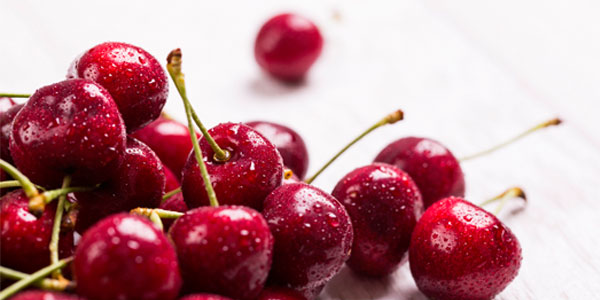Easing IBS Symptoms
Irritable bowel syndrome affects nearly 35 million Americans. To put that in perspective, this chronic condition impacts more people than the entire population of Texas. Many people miss school, work and social commitments because of its debilitating effects.

Symptoms differ, but most people with IBS experience a variety of discomforts, such as bloating, gas, diarrhea, cramping, constipation and abdominal pain—all on a regular basis. Women are almost twice as likely as men to have IBS, and most diagnoses occur in people younger than 45.
Jeffrey Aron, M.D., medical director for Sutter’s Center for Inflammatory Bowel Disorders in San Francisco, describes the gastrointestinal tract as a gigantic and powerfully receptive system.
“The gut is the main sensing organ of the external environment in all living things,” Dr. Aron says. “Its total surface area in humans is more than a quarter mile. There are more immune, nerve and hormonal cells in the gastrointestinal tract than anywhere else in the body.”
Changes to the gut’s anatomy, physiology or surrounding environment causes IBS’s inflammatory response in sensitive people.
There’s no cure for IBS, but dietary and lifestyle changes can ease symptoms. Food is a huge trigger for most IBS sufferers; emotional stress, as well as fluctuating hormones and menstruation in women, also exacerbate symptoms, Dr. Aron says. “In the short-term of the menstrual cycle, female hormones can produce immediate changes in digestive tract muscle function, so symptoms are often worse near menstruation,” he says. (Interestingly, pregnancy appears to temporarily improve IBS symptoms.)
IBS Eating Tips
Make food your friend, not your enemy. Follow these dietary guidelines to soothe IBS symptoms.
Eat Smaller Meals Slowly
Instead of three big meals, try eating five or six smaller meals throughout the day. Large meals overstimulate the gut, so chew your food well to make it easier to digest.
Avoid High-fat Foods
Fatty foods are difficult to digest and can cause diarrhea. Choose lean meats, fruits, vegetables and whole grains, use minimal butter or oil when cooking, and avoid frying foods.
Choose Fresh
Processed foods such as chips, pastries and frozen meals contain starches that resist digestion, leading to bloating, gas and diarrhea. Cook your own fresh foods.
Increase Soluble Fiber
To prevent constipation, focus on soluble fiber-rich fruits and vegetables. Eating too much insoluble fiber can make you feel bloated. While it’s important to eat foods with insoluble fiber, such as wheat bran, whole grains and many fruits, it’s best to do so in small amounts. Like fatty foods, insoluble fiber can stimulate your gastrointestinal tract and cause diarrhea.
Enjoy Breakfast
If you’re constipated, one of the best things you can do is eat a healthy breakfast, such as soluble fiber-rich oatmeal and oat bran, fresh fruit, yogurt and eggs. Eating early in the day stimulates your colon and helps bowel elimination.
Skip Caffeine
This stimulant, found in coffee, tea, soda and chocolate, can lead to diarrhea. If you’ve got IBS symptoms, try herbal peppermint tea or a chicory-based “coffee” instead.
Best Foods for IBS
Everyone’s health and medical history is unique, so you’ll need to pinpoint what works best for managing your IBS. Studies suggest benefits from eating more of these healthful foods:
- Most fruits and vegetables, except for those that cause excess gas (see Foods to Avoid, below)
- Berries
- Carrots
- Whole grains, such as barley, quinoa and oats
- Miso
- Tempeh
- Soy drinks
- Probiotics, live bacteria that aids digestion, found in dietary supplements and fermented foods such as yogurt, sauerkraut and kombucha
Foods to Avoid
Across the board, these foods are more likely to agitate IBS:
- Alcohol
- Artificial sweeteners
- Broccoli
- Brussels sprouts
- Cabbage
- Caffeine
- Carbonated drinks
- Cauliflower
- Chocolate
- Corn
- Dairy products, especially those with whole milk and cheese
- Desserts with concentrated sugar and fats
- Fatty meats, such as beef or pork
- Fried foods
- Garlic
- Nuts
- Onions
- Raisins
- Tomatoes
- Wheat
Steps for Success
Although no test identifies IBS specifically, your doctor can run a variety of diagnostic panels to rule out food intolerances, allergies and other disorders as causes of your gastrointestinal problems. You may also want to consult with a gastroenterologist, a physician who specializes in digestive disorders.
Start a food journal to keep track of how certain foods and drinks affect you. Also, practice stress reduction techniques, exercise regularly and get enough sleep, says Dr. Aron. And consider working with a nutritionist, massage therapist, acupuncturist or counselor for additional benefits.
“With a disorder this complex, it helps to have a team of experts on your side that can provide a holistic approach,” Dr. Aron says. “The most effective care promotes a partnership between experts who specialize in this disorder and people who know their bodies.”




